“This election will be ferocious right to the end, because both parties still have a chance of forming the government.”
Bob Richardson
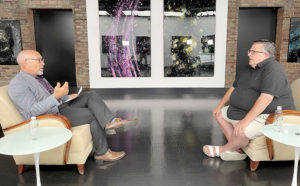
As Canada’s election deadline approaches, Canadians wrap up their thoughts on where to draw the cross on the list of candidates on their ballot. Occurring under unique circumstances, after Liberal leader Justin Trudeau asked Governor General Mary May Simon to dissolve Parliament in the middle of the COVID-19 pandemic, this is estimated to be Canada’s most expensive federal election ever, with a projected cost of $610-million dollars for the 36-day campaign, as stated by Elections Canada. More than five million Canadians have already cast ballots at advance polls in the federal election, however the final verdict will be dictated on September 20th. In an interview held at Camões TV’s studios for the show Here Is The Thing, host Manuel DaCosta invited Bob Richardson, public affairs advisor – senior counsel at National Public Relations, to discuss fundamental aspects of 2021’s tight race.
Manuel DaCosta: How do you see the dynamics of this election when it’s so tight, one week from the vote?
Bob Richardson: I think it looks tight from the national perspective. You have to take a look regionally and how it is going in each of the regions. Because, at the end of the day, what we count it’s seats, it’s not popular voters. So if they’re tied, I’d give a bit of an advantage to the liberals. Their vote is much more efficient across the country. The conservatives tend to pile upvotes in rural Manitoba, Saskatchewan and Alberta, while the liberal vote tends to be more evenly spread. As a result of that, it generally produces more seats. If an election was held today, the liberals would probably get the plurality of seats in the Atlantic provinces, they would do relatively well in Quebec, against the Bloc Québécois, the conservatives running third, they’d probably get the plurality of seats in Ontario and then they’d get a smattering of seats across the prairies and probably ten seats in British Columbia. Adding that up, it’s probably about 150 or 155 seats. 170 are needed for a majority, but I don’t think anyone’s getting the majority this time. I think the conservatives probably come in around 130 or something like that. But, there’s always a but in these things, there are about 30 seats that are very close within 5 or 7 points. So, this election is far from over. It will be ferocious right to the end because both parties still have a chance of forming the government.
MDC: Many suggest that this is a fairly hollow and unnecessary election and that this was nothing more than for Mr. Trudeau to assert more power into possibly getting a majority of the government. Do you see this as a hollow election or a necessary election?
BR: I think the liberals could have done a better job defining why we’re having the election. That being said, when minority governments in this country usually last around 455 days, this one lasted over 600, so it’s certainly within line with what we would normally expect for a minority government. I think the truth is somewhere in the middle. The opposition has been playing games with the government, and then the government was getting tired of that and thought, “let’s go to the people, and we’ll see if we can get a majority”. So I think it has to do more with people playing politics on Parliament Hill than it does with anything else.
MDC: But spending six hundred million dollars on an election in the middle of a pandemic, which Mr. Trudeau had previously suggested that would never happen, it’s a huge amount.
BR: It’s a lot of money, and I think if he came out and said, “look, I got elected in 2019, and since then there’s been a massive pandemic, it has changed everything, we have some really big decisions to make. I’m checking back in with you. Here’s the approach I want to take on those issues. I want you to back me so I know I can move on these things in parliament”. If he said that, I would have gone, “okay, that’s reasonable, that makes some sense.” But they didn’t really clearly outline that, and as a result, I think they’ve been a bit on their heels for most of this election.
MDC: As I look at this campaign, something very strange that is occurring due to the disruptions that Mr. Trudeau has experienced. He’s come out against the protesters, calling them all kinds of names. Do you think he is taking the right approach during the campaign?
BR: I think he’s been pretty measured in terms of dealing with these guys. I think he’s lost his cool once or twice. When you got people throwing gravel at you or making inappropriate remarks about your wife and your children or doing things like that, I might lose my cool as well. So I’ll give them a pass on that one. I actually think he’s been relatively mature in the manner that he’s dealt with this. But definitely, Canadian elections used to be much more polite. That seems to be off the table, and it seems to be a much more rough and tumbling environment than it was.
MDC: So what has changed with Canadians? Does this seem to be something that will be normal for the future?
BR: We’ll see, but I think a lot of it comes from the experience down in the United States. Trump empowered a lot of people that never used to speak up before, who feel that they can go out and say whatever they want. I think we’re seeing a little bit of that “trumpism” here in Canada as well.
MDC: Speaking of leaders’ platforms, they all put together their wish lists where millions of dollars are going to be spent. Our debt is $659-billion, which is more than the past 22 prime ministers put together. Now we’re adding the $600-million election, plus all party platforms. We are going to get to $700-billion of debt at some point. How are we going to deal with this?
BR: It is a big number, and we do have to start dealing with it. We’ve got to start bringing some of those programs down and do it in kind of an orderly fashion. But let’s remember this was a very, very exceptional time, and I might also note that all the parties in the House of Commons voted for CERB (Canada Emergency Response Benefit), voted for CIBA (Canada Emergency Business Account), voted for all the extra supports so, although it gets piled up under Trudeau, this was an exceptional circumstance. That being said, we still got the number on our credit card. What we need to do is figure out how to begin paying that down. I think there’s going to have to be some increase in taxes, that’s just my personal view, there has to be a cut in government spending, and we’re also going to need to grow our core economy a lot more.
MDC: Looking at the potential of a minority of the government, I believe Trudeau will possibly form the government, but it’s possible that the conservatives come out on top and win a minority government, if the vote is very close, let’s say just a few seats. This result won’t necessarily mean that the conservatives will be allowed to form the government.
BR: That’s a very good point. We’re in a parliamentary system, so if the Liberals and the New Democrats decide to get together as they did in the Ontario legislature between 1985 and 1987, they signed a pact, and they governed it for two years with the NDP supporting the liberals, and they checked off all the items that they agreed to do. So there is ample historic precedent both in this country and certainly in Britain. There are lots of opportunities for parties to trade, I’m not sure that will happen, but there’s certainly lots of precedent for it.
MDC: In this federal election, Portuguese-Canadians’ representation is once again almost nonexistent. Historically, the Portuguese don’t get out and vote, which is a fact. For the successful development and integration of an ethic committee into the fabric of Canada and to really have proper representation and for the political system to notice them, explain a little bit to the Portuguese audience how important it is for communities to come out and vote in numbers and what that will do for its future in the political system.
BR: I think the Portuguese community has had, in the past, some fairly good political representation. I think of the former finance minister Charles Sousa in Ontario, the finance minister in Quebec, there have been Portuguese members in the Parliament, Mario Silva is an example of that, members of the legislature, Peter Fonseca in Mississauga, so there is some representation. I think what needs to be done, though, is the community needs to be more active politically and also needs to be thinking about the next generation. Who could be the next generation of candidates? Not just in the Liberal Party but other parties, so that you get greater participation of the Portuguese community across the political spectrum, not just in one party but in multiple parties. Other communities, like Italian and Indian, they have been doing that. They make sure that they have significant representation for their views and their concerns. You got to start working on it now, and you got to get people involved in the community now. Once they’ve done that, then that it’s easier for them to run for office. And then, once they run for office, so on, so forth, but you want to make sure that you constantly have a presence.
Watch the whole interview this Saturday, September 18th on Camões TV, at 21h.

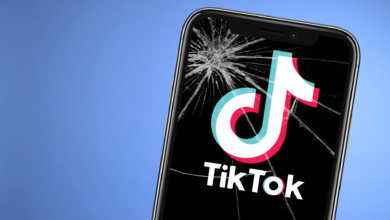


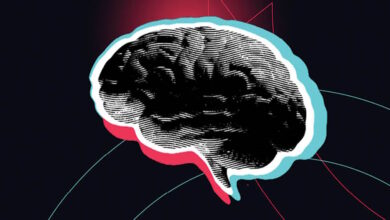

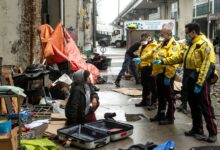
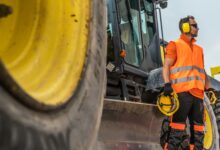
Redes Sociais - Comentários